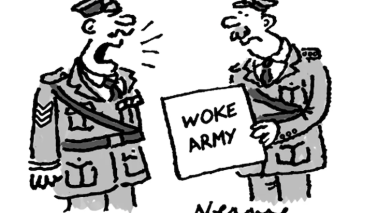From the beginning the Obama campaign and administration has made a point, even a fetish, of process. Judgement matters and good process is considered vital to increasing the chances that good judgements will be made. Hillary Clinton’s 3am alarm call advert during the primary was deemed silly because, actually, it’s pretty unusual for a President to have to make an instant, sleepy-headed and blurry-eyed call of the kind imagined by the advert. And of course Obama’s supporters in that primary tended to think his judgement – cooler, more measured, less flighty – better than Hillary’s. Iraq was not the only data point, either.
So let’s see what David Brooks has to say today:
President Obama took this decision, I’m told, fully aware that there was no political upside while there were enormous political risks. He took it fully aware that we don’t know much about Libya. He took it fully aware that if he took this action he would be partially on the hook for Libya’s future. But he took it as an American must — motivated by this country’s historical role as a champion of freedom and humanity — and with the awareness that we simply could not stand by with Russia and China in opposition.
Does it need to be said that the man who wrote Dreams From My Father was not actually the man the electorate chose to send to Washington? Be that as it may, it’s quite something to see the White House briefing reporters that the President took these decisions quite so recklessly and without knowing, by his aides’ own admission, anything about much of what might happen in Libya. Some process!In this decision, one could see the same sensitive, idealistic man who wrote “Dreams From My Father.”
As for this “awareness that we simply could not stand by with Russia and China in opposition” brings us back to the oddness of granting Russia and China a veto over US policy. If it is the “right” thing to do – and one can see the case for why it could be – then their approval shouldn’t be necessary. If their approval is necessary and they could have stopped the war simply by voting No in New York then our conviction that it’s the right thing to do is not very strong at all or is, at least, severely limited. We care but just a bit and, had the Russians opposed us, not enough to override their objections.
As for Brooks and his notion that an American “must” be motivated by his “country’s historical role as a champion of freedom and liberty” well, really, there are biscuits being taken here. Sure, the United States has a long and reputable record in these matters but to pretend that there’s a consistency to its actions or that when any American president “must” launch this kind of intervention flatters the self-regard of National Greatness Conservatives but does not stand up to even the mildest quantity of scrutiny.
Daniel Larison, as you would expect, has more.






Comments